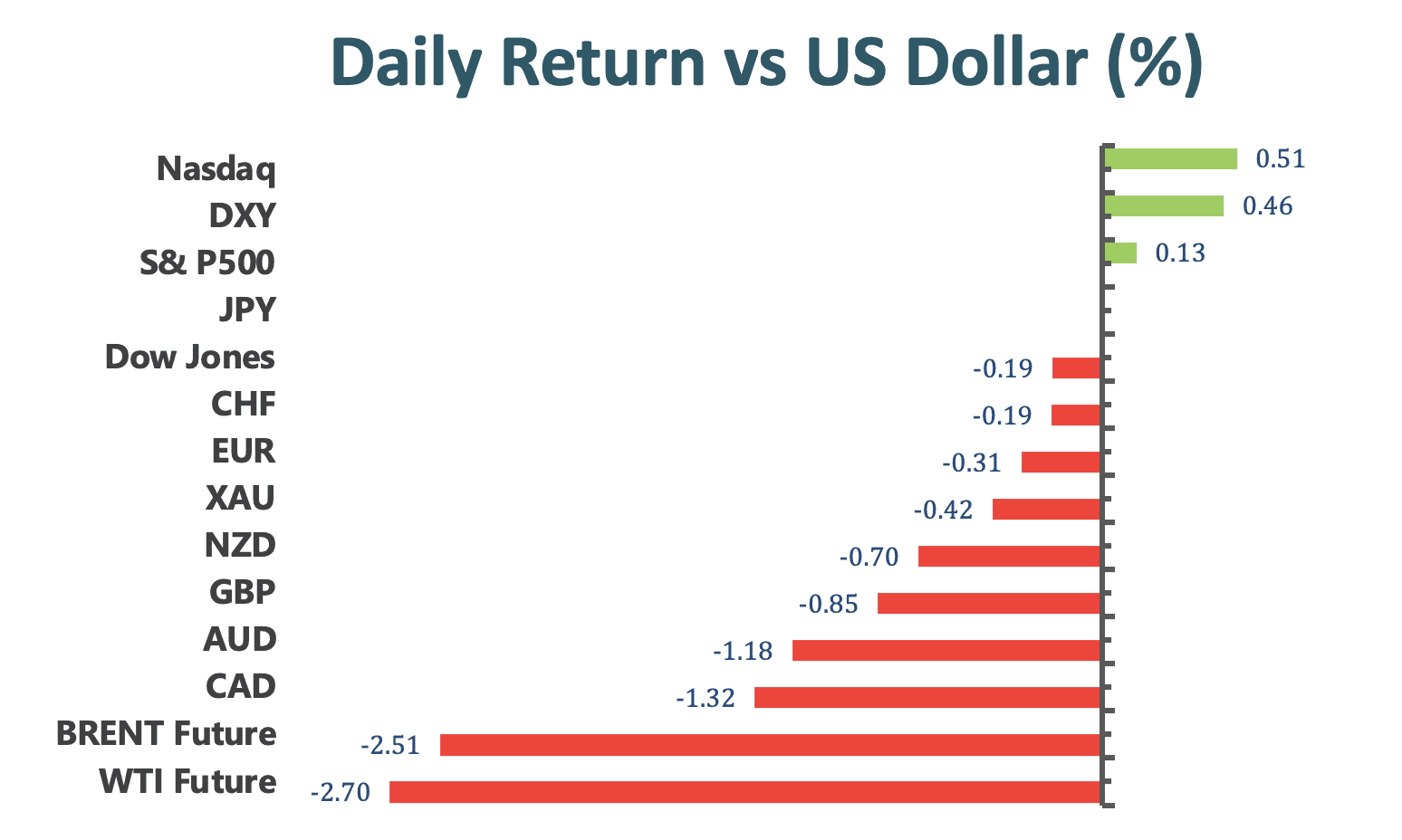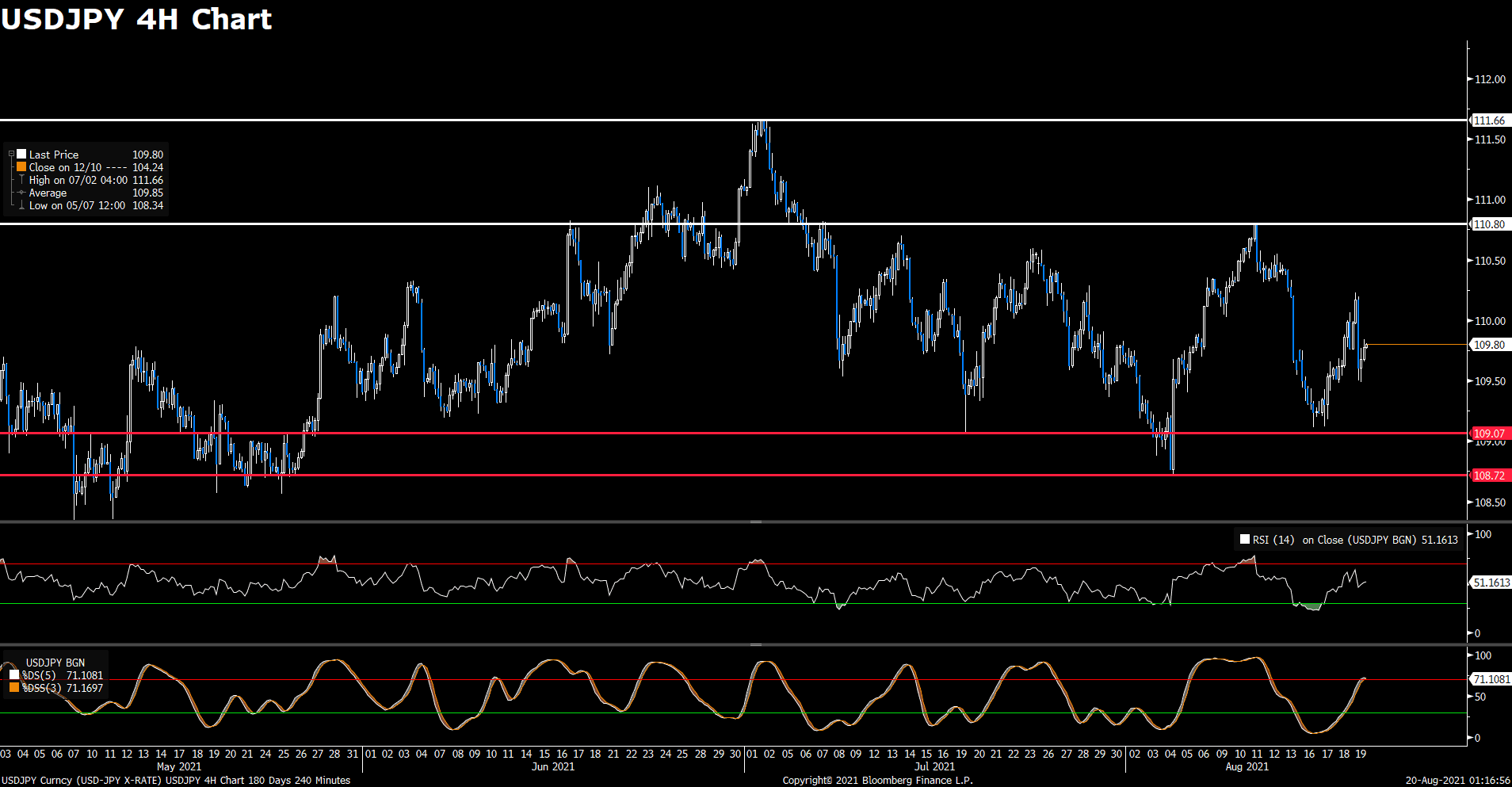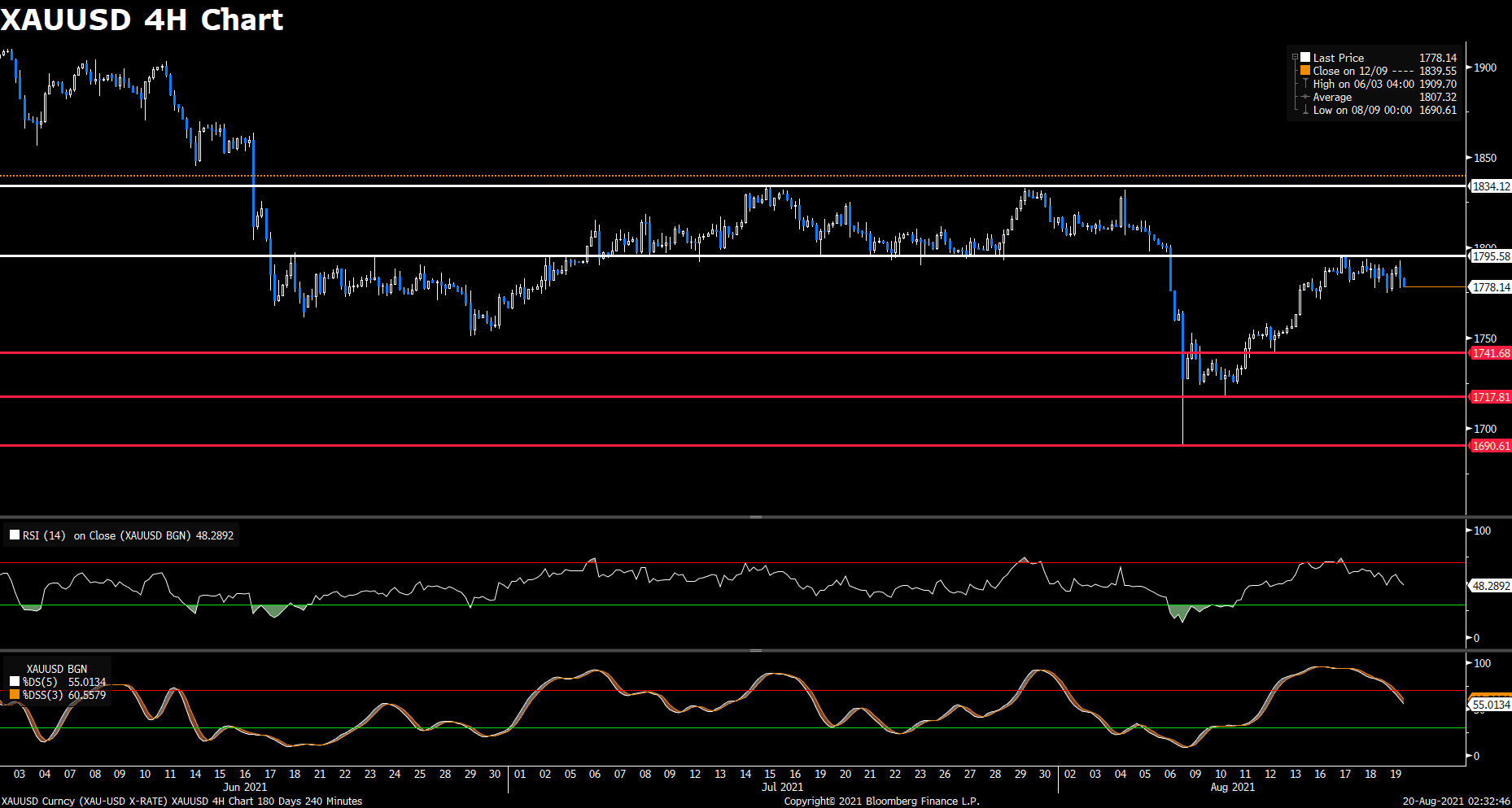Daily Market Analysis
Market Focus
Stock trading was volatile ahead of Friday’s options expiration. The S&P 500 closed higher after swinging between gains and losses throughout most of the session, while the Cboe Volatility Index (VIX) was on track for its biggest weekly surge since January. Dow Jones slid 0.19% to 34894.12, and Nasdaq rallied 0.11% to 14541.79. An earlier equity slide was driven by anxiety over the withdrawal of Federal Reserve stimulus, the coronavirus and global supply chains.
The Swiss National Bank appears to have intervened in the currency market to weaken the franc, with the amount of cash commercial lenders hold at the institution increasing by more than a billion francs for a second week running.
Sight deposits, as the holdings are known, increased by 1.04 billion francs ($1.14 billion) to 714.6 billion francs in the week ending Aug. 13, data on Monday showed.
“Such a rise does look like interventions,” said Credit Suisse Group AG economist Maxime Botteron.
A spokeswoman for the SNB declined to comment on the data.
Along with negative interest rates, interventions are one of the SNB’s tools to limit an undue appreciation of the “highly valued” franc. After a particularly heavy engagement in foreign-exchange markets during the initial phase of the pandemic, the SNB got labeled a currency manipulator by the U.S. Treasury last year. The designation has since been removed.
Main Pairs Movement:
The US Dollar advanced on Thursday, trading at 93.570 at the time of writing, the highest level since November 2020. The bull-movement was a continuation of July’s FOMC meeting minutes released on Wednesday, as the market expects that the Fed will start asset tapering later this year. On top of that, better than expected US employment-related figures also added to the dollar’s strength. Therefore, the US dollar was pushed higher against most major rivals.
EUR/USD and AUD/USD both touched its lowest level since November 2020 on Thursday, trading at 1.1675 and 0.7146, respectively. GBP/USD also dropped to a monthly low at 1.3637. A scarce UK economic calendar and Federal Reserve taper talks news are weighing on the cable.
USD/JPY opened higher during Asia session, but then pulled back from its weekly high, now hovering around 109.79 at the time of writing.
Gold price declined during North American session, mainly due to the dollar’s strength with Feds’ talks about bond tapering. WTI dropped to a monthly low at $62.61, later bounced back towards $63.87. The crude oil slide is owing to US dollar strength and fears of slower demand due to Covid-19 cases rising.
Technical Analysis:
GBPUSD (4-hour Chart)
At the time of writing, GBP/USD extended the decline and fell to monthly low at 1.3661. US dollar is still benefiting from the spread of the Delta variant of Covid-19, China’s corporate crackdown and the turmoil in Afghanistan. In addition, expectations that the Fed will begin tapering its asset purchases later this year pushed the US dollar to a nine-month high on Thursday. This was seen as a key factor that continued exerting downward pressure on the GBP/USD pair.
For technical aspect, RSI indicator 24 figures as of writing, suggesting the market is oversold now and selling pressure is too high, traders should pay attention to whether the downward trend may reverse in the near future. If we take a look at Stochastic Oscillator, the fast line lied under 20 level which shows that the market is in a weak position.
In conclusion, we think market will be bearish, the downward trend may persist and test the 1.3571 support. For GBP/USD traders, the next data to look out for is the UK Retail Sales released on Friday, a higher than expected reading should be taken as positive for the British Pound. Also, more information is expected at the Jackson Hole symposium in August 26-28.
Resistance: 1.3910, 1.4001
Support: 1.3572, 1.3430
USDJPY (4- Hour Chart)
The USD/JPY pair rose to its weekly high at 110.22 on Thursday but then failed to preserve its bullish momentum. At the time of writing, the pair was trading at 109.80. The sharp decline witnessed in major European equity indexes allowed the demand of Japanese Yen to increase on Thursday. On the other hand, after the release of the FOMC’s July meeting minutes, the US Dollar continues to push higher as the market still assume that the Fed will start asset tapering before the end of the year. Currently, the dollar is trading at 93.461, its strongest level since November 2020.
For technical aspect, RSI indicator 51 figures as of writing, suggesting that the buying power and selling power are almost equal. If we take a look at Stochastic Oscillator, a fast line lied above 70 level, which shows that the market is overbought now and chances are high that the price will continue to go up.
In conclusion, we think market will be tepid bullish, as the US dollar strength is likely to hold. On Friday, Japan’s National Core Consumer Price Index is scheduled to be released, traders can follow the data closely to see what kind of effect it will bring to the Japanese Yen.
Resistance: 110.80, 111.66
Support: 109.07, 108.72
XAUUSD (4- Hour Chart)
Gold prices started to decline lower in Thursday’s North American session with pressure from a stronger US Dollar. The DXY index, which tracks the greenback versus a basket of currencies, is now at a yearly high of 93.558. The XAU/USD pair is now trading at 1778.14. The FOMC meeting minutes released on Wednesday revealed that the central bank is on track to start asset tapering later this year, meanwhile, pushing the US dollar to the highest level since November 2020. This was seen as a factor that put pressure on dollar-denominated commodities, including gold.
For technical aspect, RSI indicator 48 figures as of writing, suggesting there is no obvious trend for the pair now. If we take a look at Stochastic Oscillator, a fast line lied around 55 level shows that the market is in a relatively neutral position.
In conclusion, we think market will be bearish as long as the 1795.58 resistance line holds. For XAU/USD traders, the focus now shifts to next week’s Jackson Hole Symposium when Fed Chairman Jerome Powell will speak. Hawkish tones will likely continue to underpin the US dollar and putting pressure against gold prices.
Resistance: 1795.58, 1834.12
Support: 1741.68, 1717.81, 1690.61
Economic Data
|
Currency |
Data |
Time (GMT + 8) |
Forecast |
||||
|
CNY |
PBoC Loan Prime Rate |
09:30 |
|||||
|
GBP |
Retail Sales (MoM) (Jul) |
14:00 |
0.4% |
||||
|
CAD |
Core Retail Sales (MoM) (Jun) |
20:30 |
4.6% |
||||












